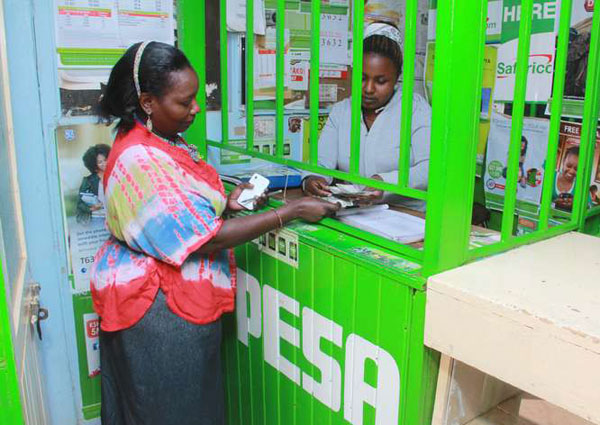
For every hour Ksh 21.5 billion is being deposited, withdrawn or used to pay for goods and services via mobile money. That’s how immense mobile money has taken over financial services in the country. According to the latest data from the Communications Authority, as at last year, mobile money transactions in Kenya hit an average of Sh14.93 million per minute last year, with the margin growing bigger this year.
The value of mobile money transactions grew by Sh2.25 trillion from Sh5.8 trillion in 2017 and the continued expansion of mobile payments in Kenya is driving Kenya closer towards becoming a cash-lite economy, revealed the report further. At least Sh7.85 trillion was transacted in the form of deposits and withdrawals as well as mobile commerce transfers, 91.39 percent of the value of Kenya’s GDP at Sh8.59 trillion.
Safaricom PlC’s M-Pesa has continued to tower the country’s money transfer market, controlling 92.02 percent or Sh1.95 trillion of the total transactions. Of these, Sh1.35 trillion was used in mobile commerce. Among its features, Lipa Na M-Pesa has become so popular among most Kenyans in Urban areas, who have utilized this payment option as they find it convenient, reliable and just a swipe away.
However, unlike the widespread perception that mobile money is widely used, recent survey findings dubbed FinAccess by Central Bank flipped the script, dismissing the notion. Truth is Cash is the main payment channel used by business enterprises at 94 percent followed distantly by mobile money at 3.7 percent. Bank cheque was estimated at o.5 percent, in-kind payments for goods and services at 0.3 percent while others at 0.1 percent, confirmed the report.
Well, from the estimates, mobile money is miles away from ever beating cash, which could take a long while looking at the margins. Airtel Money, Equitel and T-Kash have been competing weakly against Safaricom’s robust M-Pesa which has been doing great,but Cash payment could just be its all-time unbeatable competitor.
In September last year, the government slapped a 20 percent excise duty on fees charged for money transfer services by banks, money transfer agencies, and another financial service provider. This saw telcos offering mobile money services increase charges on transactions to share the tax burden with consumers, with consumers switching to other cheaper options of mobile money services.



